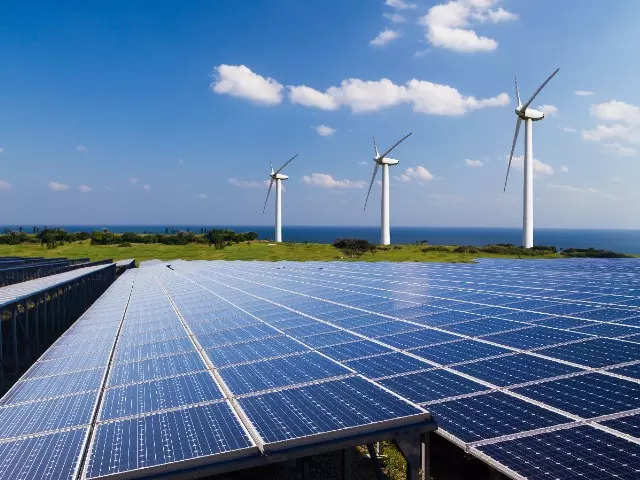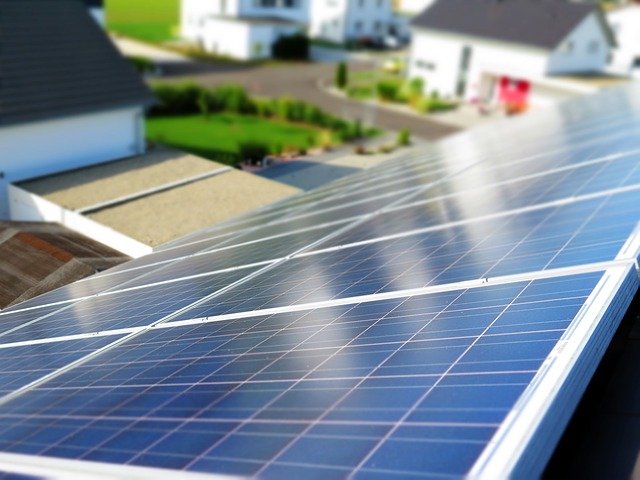
Profound Benefits of Green Energy
In today’s rapidly evolving world, the pursuit of sustainability has never been more critical. One of the most compelling avenues towards a sustainable future is the adoption of green energy. As we confront the challenges of climate change and dwindling fossil fuel reserves, green energy emerges as a beacon of hope, offering a multitude of benefits that extend far beyond the reduction of carbon emissions. In this comprehensive article, we will delve into the remarkable advantages of green energy, shedding light on its potential to reshape our planet and usher in a cleaner, brighter future.
Harnessing the Power of the Sun
At the heart of green energy lies the harnessing of renewable sources, and none is more abundant than sunlight. Solar energy has become a cornerstone of the green energy revolution. By installing photovoltaic panels, homes, businesses, and entire communities can tap into the sun’s energy, converting it into electricity. The benefits are manifold:
1. Environmentally Friendly
Solar energy production emits zero greenhouse gases, making it a potent tool in combating climate change. Unlike fossil fuels, which release harmful pollutants, solar panels generate electricity without contributing to air pollution or global warming.
2. Cost-Effective
While the initial investment in solar panels may seem substantial, the long-term savings are undeniable. Solar energy systems typically pay for themselves over time through reduced electricity bills. In addition, many governments offer incentives and tax credits to further reduce the financial burden of going solar.
3. Energy Independence
By generating their own electricity, solar-powered homes and businesses become less reliant on the grid. This not only insulates them from energy price fluctuations but also contributes to the overall stability of the power supply.
The Wind Beneath Our Clean Energy Wings
Another prominent player in the realm of green energy is wind power. Wind turbines dot the landscapes of many nations, their majestic blades turning with the breeze. Here’s why wind energy is a vital part of the sustainable energy equation:
1. Abundant and Renewable
The wind is an infinitely available resource. Unlike finite fossil fuels, wind energy will never run out. As long as the Earth’s atmosphere exists, we can harness its power to generate electricity.
2. Low Environmental Impact
Wind turbines have a minimal environmental footprint. They produce no air or water pollution and consume no water during operation. This makes wind power one of the cleanest energy sources available.
3. Job Creation and Economic Growth
The wind energy sector has emerged as a significant source of employment and economic growth in many regions. From manufacturing and installation to maintenance and research, wind energy creates jobs and stimulates local economies.

The Versatility of Biomass Energy
Biomass energy, derived from organic materials such as wood, crop residues, and even algae, offers a versatile and sustainable energy source with numerous benefits:
1. Carbon Neutrality
Biomass is considered carbon-neutral because the carbon dioxide released during its combustion is offset by the carbon dioxide absorbed by the plants during their growth. This closed-loop system helps mitigate greenhouse gas emissions.
2. Waste Reduction
Biomass energy can utilize organic waste materials that would otherwise end up in landfills, helping reduce waste disposal issues and associated environmental problems.
3. Energy Security
By diversifying energy sources and relying on locally available biomass materials, communities can enhance their energy security and resilience to external disruptions.
Hydropower: A Force for Clean Energy
Hydropower has long been a stalwart in the world of renewable energy, providing electricity through the force of flowing water:
1. Clean and Reliable
Hydropower is among the cleanest energy sources, generating electricity without producing greenhouse gas emissions or air pollutants. It also boasts a high level of reliability, ensuring a stable power supply.
2. Flood Control and Water Management
Hydropower facilities often serve dual purposes, including flood control and water resource management. These benefits extend beyond energy generation and contribute to overall environmental and societal well-being.
3. Sustainable Development
Hydropower projects can promote sustainable development by providing clean energy, supporting local economies, and enhancing infrastructure in remote regions. Be sure to visit their page to find out about their customer support and service.
The Path Forward
In conclusion, the benefits of green energy are not limited to environmental concerns; they encompass economic, social, and even geopolitical advantages. The transition to green energy is a beacon of hope in our efforts to combat climate change, reduce our carbon footprint, and create a more sustainable world.
As we embrace green energy, we take a significant step towards a future where cleaner air, lower energy costs, and greater energy independence are the norm. The time to act is now, and the choice is clear: green energy is not just an option; it’s the key to unlocking a sustainable future for generations to come.









